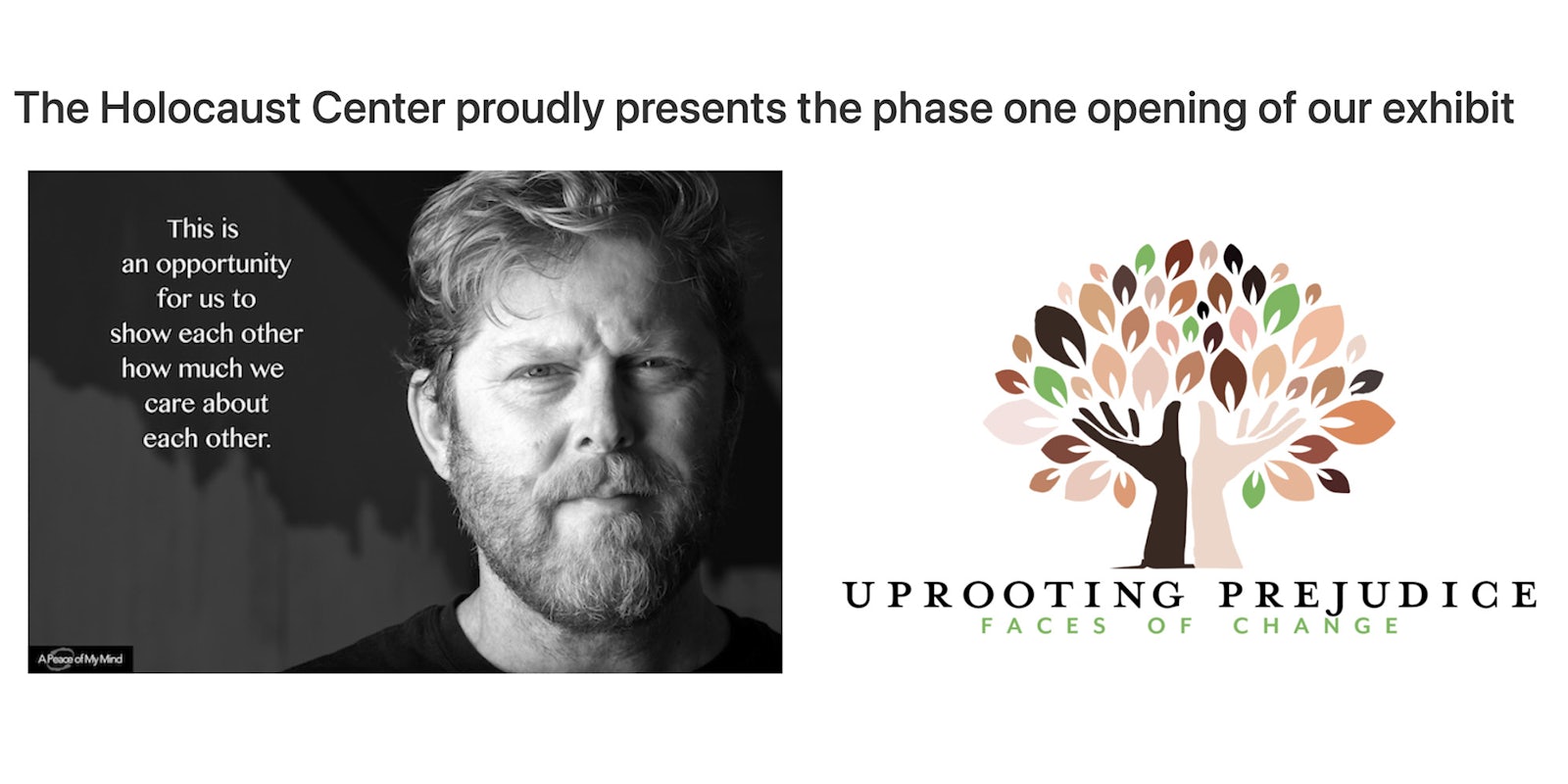A Holocaust museum in Florida opened an exhibit three weeks ago, inspired by George Floyd and the protests concerning racial injustice following his May 25 death. But the internet handwringing over a “George Floyd Holocaust exhibit” has developed in recent days, oversimplifying an exhibit that made connections between state-sponsored genocide from the Nazi regime in Germany and a concerning pattern of police brutality against Black people in the U.S.
Right-wing media outlets include Newsmax and the Daily Wire expressed outrage that Floyd’s death, while in police custody and captured on video, would be compared to the Holocaust.
Newsmax, for instance, featured its interview with Americans Against Antisemitism founder Dov Hikind, flagging the line “it is an insult to the memory of the 6 million” to take about George Floyd in a Holocaust museum.
Hikind pinned a tweet of himself speaking on the issue in a video, expressing, “There are a lot of places suitable for hosting a George Floyd exhibit… but a Holocaust museum is not one of them.”
The Daily Wire, where high-profile conservative commentator Ben Shapiro is Editor Emeritus, weighed in by promoting its story.
Even Canadians got in on the act, with Rebel News’s Ezra Levant asking, “George Floyd is added to a Holocaust museum?” before opining, “That trivializes and distorts the Holocaust and its six million Jewish victims. And it grotesquely implies that American police are Nazis.”
While some came to the conservatives’ side in the debate; one respondent to the Daily Wire post argued, “Politicization the Holocaust and Holocaust museums like this just makes it harder to teach.” Which led someone on the other side to post, “bro I am losing my mind” in reaction to the phrase “politicizing the Holocaust. ”
That led another person to chime in, “why they gotta make genocide so political,” and yet another wryly observing, “Ah yes, ruining their pleasant family trip to the Holocaust museum with a reminder of our own genocide.”
The exhibit in question is called “Faces of Change,” and it’s the first phase of a series called “Uprooting Prejudice” that the Central Florida museum—founded by Holocaust survivor Tess Wise in 1981—is showcasing at the space.
Jewish News, writing about the exhibit, got the following explanation from the museum’s assistant director, Lisa Bachman, regarding the exhibit:
“The mission of the Holocaust Memorial Resource and Education Center of Florida is to use the history and lessons of the Holocaust to build just and caring communities free of antisemitism and all forms of prejudice and bigotry. We are educators and it is our duty to build bridges that move people from the unknown to understanding in an effort to build common humanity. Our goal is to make connections and create awareness for thoughts and ideas we may not have considered.”
She added that the exhibit “is a series of 45 black and white photos of individuals depicting their powerful emotions and thoughts in response to prejudice. George Floyd is not mentioned or pictured, nor are the police, by any individual in the exhibit.”
The museum’s website also includes this statement about the exhibit:
When someone faces an act of antisemitism, racism, or any form of identity based hate, whether it results in death or not, there is an uprising of many emotions. We felt it was important to bring the human experience of the aftermath to our museum.
In the days immediately following one brutal event, photographer John Noltner brought a simple studio to the intersection of 38th and Chicago, set up on the sidewalk and asked the people gathered a question: “What do you want to say?”
The result is a series of beautiful portraits and meaningful expressions showing a balance of reverence, pain and frustration. This series is an act of listening. Sometimes you just have to show up. Bear witness. And begin to see that whether the problems are over here or over there, us or them, you or me, they are our problems. And we need to fix them together.
For those in the Orlando area who curious to see the exhibit, the museum is letting in groups of five or less every 15 minutes, with additional guidelines posted on its website.


